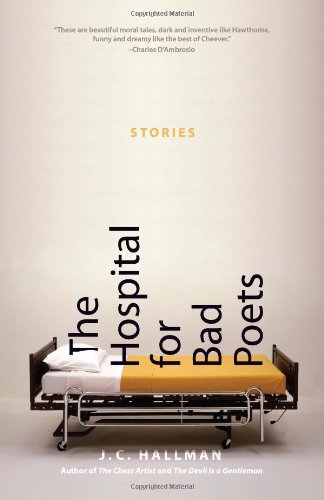What is billed as a set of philosophical short stories starts out that way with its first piece but then becomes much more straightforward thereafter. And that is probably for the better, as they seem more human. "Ethan: A Love Story" is about an odd uncle who plays Halo and other games with his six-year-old nephew. In one of these games, they find their own family and their own selves. How exactly does one move forward when faced with what one knows?
"Autopoiesis for the Common Man" deals with a young man who has two forty-something girlfriends, both nurses. Scientific jargon about the sex act turns both of them on, and much attention is paid to the idea that sex is in the end a biologic act that furthers the species. The jargon contrasts with the emotions in the piece, hiding the latter, and making the relationships seem much more clinical than they apparently are.
"Manikin" is about a kid whose father leaves one day to go to Tulsa (i.e., backward for "a slut," Mom says). To deal with this, the son begins building a life-size doll.
"Carlson's Team" makes an apparent attempt to reverse our everyday world so that instead of people watching people on television, everyone is on television. That is, we all try to make our lives into television stories. The conceit, however, seems incompletely rendered, and I was left wondering why the story wasn't just told straight the whole way through--it does not seem like it would have lost much. The tale itself involves a soon-to-be father who has joined a basketball team to get into shape and stay there, but who discovers, the more that he plays and practices, just how bad he is.
One of the strongest stories in the collection is "Savages," an oddball story about family breakup. Mrs. McDermott cuts out a hole in the hedge separating her home from the one next door and builds a cave into which she drags one day Chuck's father, who finds many reasons to return. This initiates a string of consequences--upcoming divorce the most expected--and surprises that are shocking, disturbing, and sad. The title essentially says it all, as the humans in this story are reduced to an animal-like behavior that cuts off the basic tenets of what we call civilization, suggesting that the true cost of sexual licentiousness is our humanity.
In fact, it is in the semihorrifying stories about family life that Hallman really seems to succeed. Another strong one is "The Fire." It's a recounting of a fire that swoops down on the hills around Los Angeles, destroying homes in its wake. The story follows one man who decides to stay rather than flee with his family. He and a neighbor pull out hoses and then watch as the lines go dry. What makes this story so powerful, however, is the sideline plot about the man and his wife, who are having marriage problems. He's a lawyer who promised to quit after ten years to take care of the kids so that his wife can pursue her career (as a potter). Even though the wife has no market plan or business (and thus immediate means to support the family), she is insistent that the lawyer quit his job so that she can do her thing. It is in the context of these fights, these threats to leave, that the fire wreaks its havoc on the neighborhood, as if the family spat too threatens to destroy all.
Along a similar line is "Utopia Road," a ghost story of sorts, about an idealic new suburb that begins almost immediately after folks move in to fall apart. Electricity runs where it shouldn't, shocking people. Water goes out. Gutters get pulled off roofs. Eventually, the community comes to believe that Tom Royce, a local boy, is the one playing practical jokes on them. But after beating him up and essentially intimidating the Royce family to move, the troubles continue. Even a witch doctor won't help kick the evil spirit out of the neighborhood. Horror after horror continues, until we're left wondering when we will be next.
Other stories are a bit gimmicky, such as "Double Entendre," an advice story about how to write erotic fiction that also features its share of erotica. The constant cut to instruction, however, interferes with whatever passion we might feel for the storyline.
"The Jockey" is an amusing story about young people who are recruited to act the part of terrorists and victims in a practice session for some police and emergency responders. To what extent, one might ask, does one's betrayal during a fake practice session reveal anything real about one's actual relationship or potential there for?
The last story explores game theory in conjunction to the story itself, book-ending the collection with a tale that is in part philosophical.
Tuesday, June 28, 2016
On "The Hospital for Bad Poets" by J. C. Hallman ****
Labels:
Books,
Collections,
Four-Star Collections,
J. C. Hallman
Subscribe to:
Post Comments (Atom)







No comments:
Post a Comment